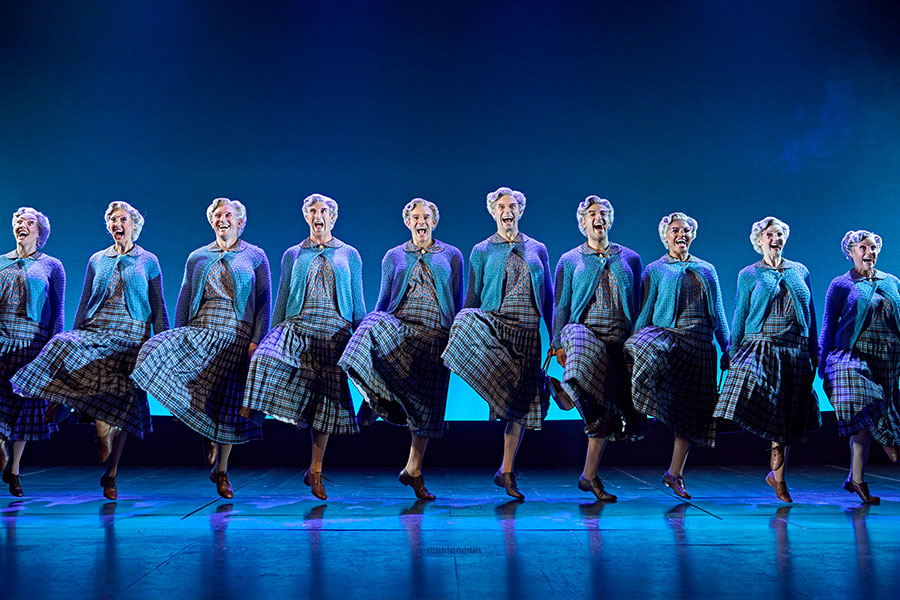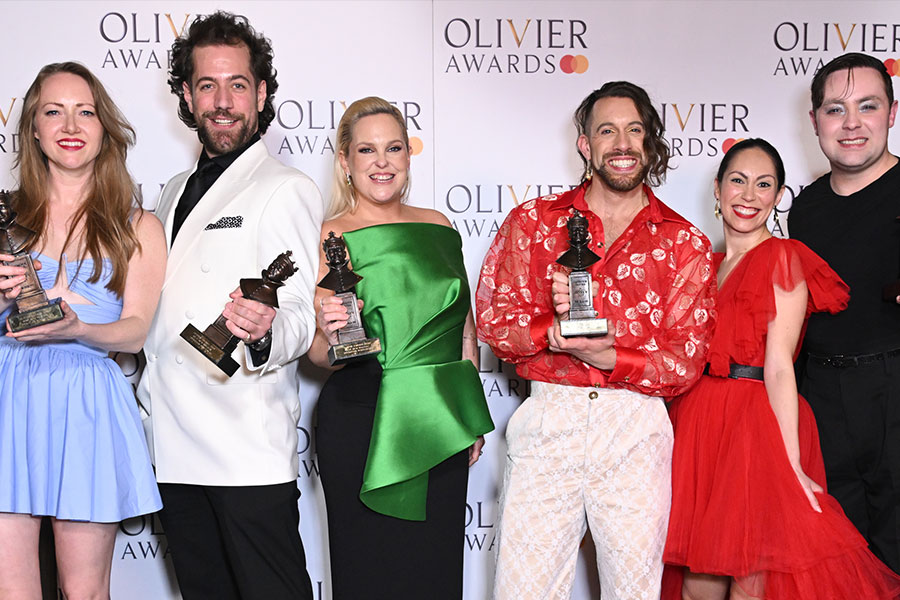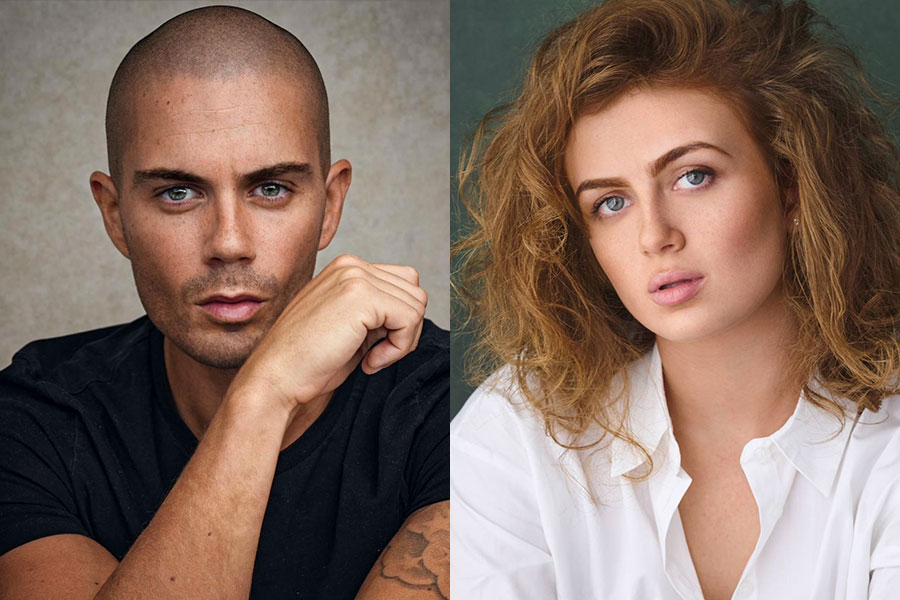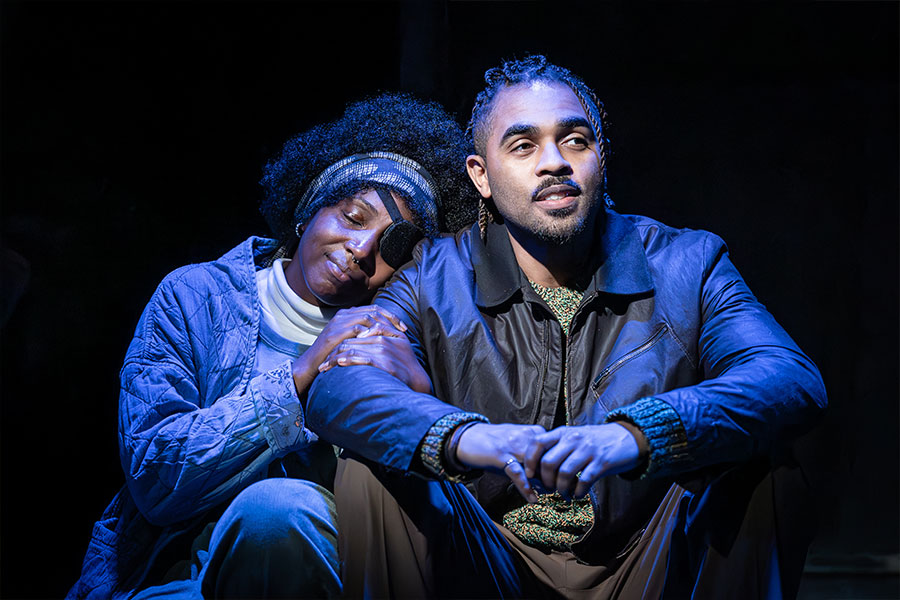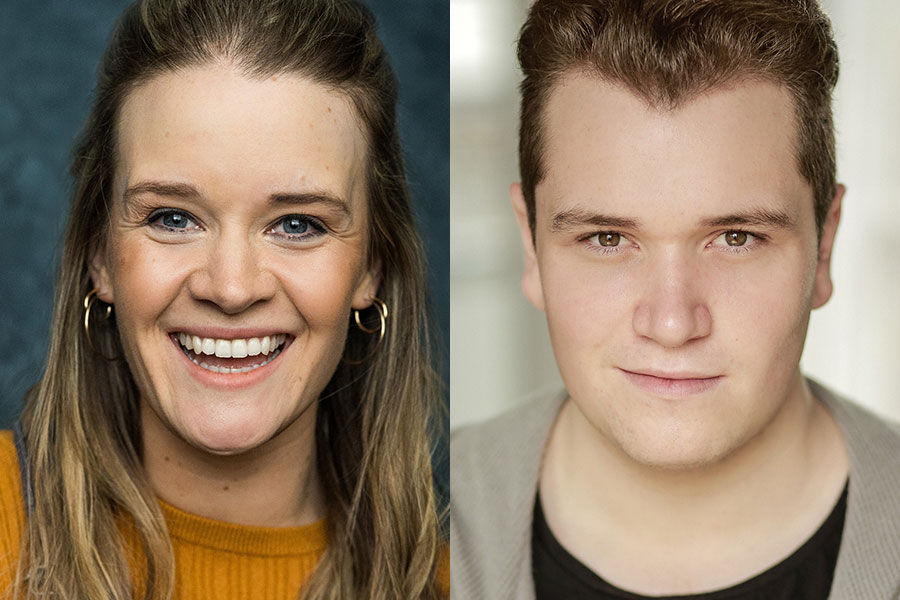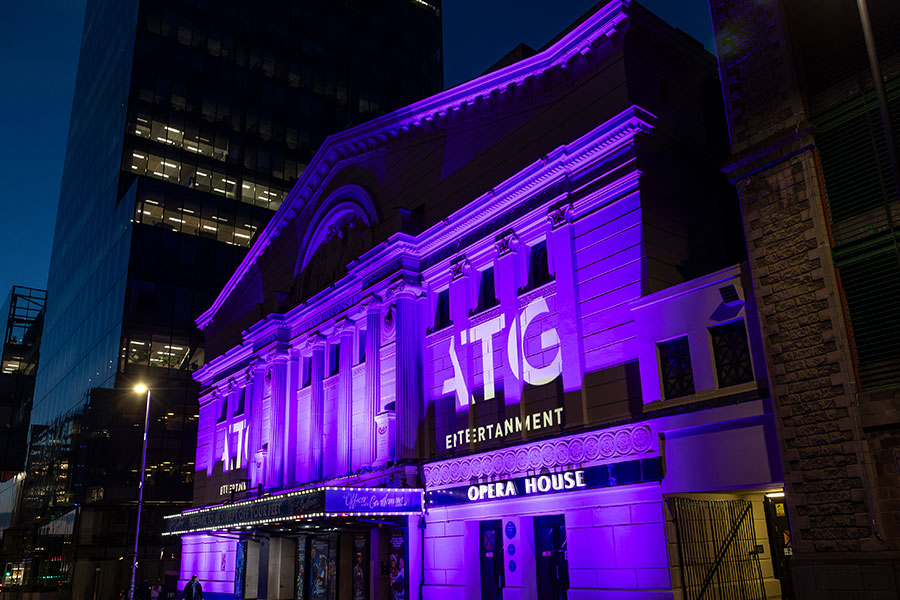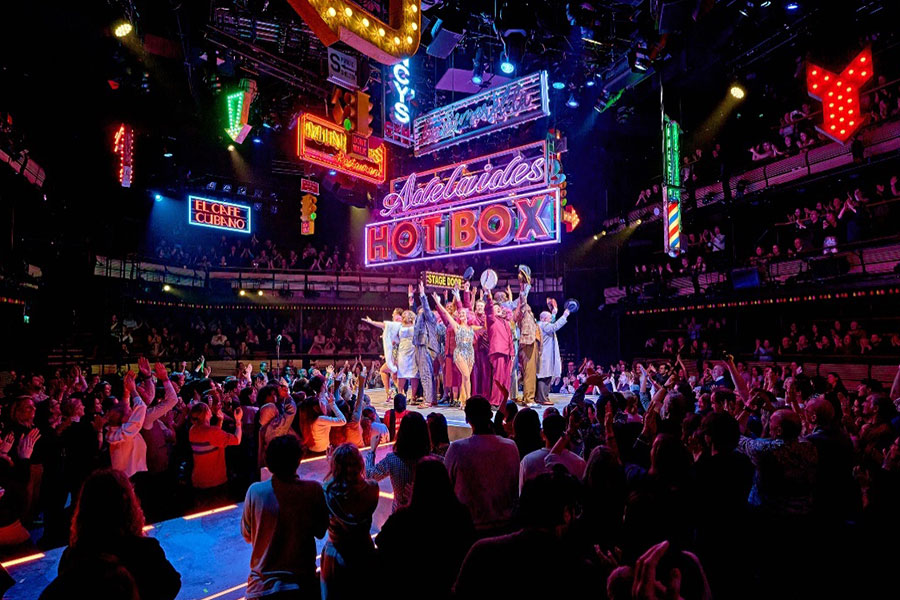The Producers: James Bierman on launching the Michael Grandage Company
James Bierman is the executive producer of the Michael Grandage Company, which launches its inaugural 15-month residency at the Noel Coward Theatre tonight (10 December 2012) with Privates on Parade starring Simon Russell Beale.
Here, he talks to Whatsonstage.com’s Terri Paddock about the foundation of the new company and why its policy of accessible ticket pricing is key.
James Bierman: I shared a fantastic working relationship with Michael at the Donmar. I think we were both curious about what life would be beyond the Donmar and when talking about various things we could do, it became very clear that what we wanted to do was afford ourselves this great big blank sheet of paper. Michael had just come out of running venues for 15 years – Sheffield and then the Donmar – and I had spent eight years at the Aldwych before joining the Donmar, so we spent a period of time thinking about whether we wanted to leap into organisations again or if there’s something about being free of venues that excited us. Over a series of coffees we realised that actually what we liked was the infrastructure an organisation can give you, so then forming the Michael Grandage Company became a very natural step.
Michael brings out the best in me, while I obviously do something that enables him to work the way he wants to, and those kinds of relationships, not that I’m getting misty eyed, are quite rare. We realised it would be silly to let this go and that we suddenly had a lot more freedom. Our productions could be in this country or abroad, they can be in a West End theatre or a small studio space. But we also knew we wanted to stretch out into film and television. Hopefully this is a nimble and small enough organisation as it is just Michael and I and Frankie (Bridges) our assistant that we should be able to do that and keep ourselves alive to all opportunities.
On naming the company
Michael is the recognisable name and obviously one has to be aware of branding and what names mean. The company is going to be defined in the short term by work Michael directs, so it felt counterintuitive to call ourselves ‘table leg productions’, or something obscure, when we already had something that has massive value and means something.
I think if you look back over Michael’s ten year career, be it Sheffield or the Donmar or the work he’s done outside those venues, there is a certain aesthetic he carries into all of his work. He only ever directs texts that trigger something in him, that mean something to him. He is one of those great directors that looks at a text and says “these words are our rocks and we will build a production from them”. And he, having been an actor, knows how to create a rehearsal room that is very democratic and collaborative, and very open, and so it builds a production that is text and actor led.
Also, there’s a certain taste that goes into how sets look, how the costumes look, how the lighting looks, how the sound score is. That comes from very long term collaborations he’s had with – Chris Oram, Adam Cork, Paule Constable and Neil Austin – and that’s always been about finding a shared voice and then refining that aesthetic through different productions. Going into the season what one’s hoping is that if somebody sees a poster for the Michael Grandage Company they recognise that that’s the man who ran the Donmar or remember seeing something they enjoyed and hope that Privates on Parade or Peter and Alice might be something like it.
On the importance of accessibility
Michael and I both came from families that weren’t especially theatrical. We both went to comprehensive schools, but at some point in our formative teenage years something happened that triggered a lifelong love of theatre. With Michael it was the RSC touring to Penzance which set him off on his path. I was lucky enough to go to a school with a headmaster who had taught Kenneth Branagh and got Ken through his auditions at RADA. He burst onto the scene when I was at school and we all went on school trips and saw all the Renaissance stuff in town and that was it for me. It felt very accessible, here was this guy who, through his love of wanting to be an actor, was making it happen. And it didn’t feel elite, like it was happening behind closed doors. That was my trigger.
Both of us haven’t forgotten what we want to achieve with our work. Obviously it’s got to pay the rent and our wages, but we really care that theatre is a power that can touch people and affect how people view their lives. It can change young people’s lives and give them something; you just have to look at drama therapy in all kinds of avenues. It’s an amazing thing, drama, and it has been for thousands of years. We’re absolutely committed to the fact that, as well as satisfying the bog standard commercial aspects, our work is accessible and that people can afford to see.
Looking back the best thing we ever achieved at the Donmar was when we gave a free performance of Hamlet. It was the most amazing night – 789 kids came to see Hamlet in the West End with Jude Law. We had worked very, very hard with a sponsor and with the education department, we’d gone out to schools that never had access to this sort of stuff before, we bussed some kids in and it was one of those great nights. Michael went backstage and said to the actors “we’ve got no idea what they’ll be like as an audience, there may be phone calls, there may be talking, I don’t know but we can do this.”
Then we both stood front of house and watched people coming in – one boy turned to a girl and said “what’s this on the wall” and she said “it’s wallpaper”. So some had never been in a West End theatre environment before, it was very alien. Turned out to be the best audience we had. They all cheered when Jude came onstage, then they were all quiet and watched. It’s the power of Shakespeare – they all got jokes, they laughed at the right time and at the end it was a standing ovation. The company was so moved by the experience, and that night it felt like a new play. I remember watching people leave, and one girl turned to her friend and said “man, I totally get that Hamlet cos my mum’s a bitch too.”
So with the MGC we were very clear that if we were going to do a season in the West End we had to make it accessible, and it’s an absolute truth that cheap tickets mean young people can get in. So that became an absolutely central foundation stone. We are doing free performances of every production which we’ll try to open out to as many schools as possible. We’re putting together a whole education package and putting our productions this season under the NGC Futures banner. What we’re trying to do is build a vehicle that will sit alongside our season that is about getting young people actively involved in something they can feel ownership in. It’s something Whatsonstage.com has done brilliantly; it’s about democracy. To think ‘my voice matters and I have an interaction now’. You can get given an award by the critics and that’s one thing, and you can be given an award by people. I think both things are incredibly valuable.
On funding
When we took the Donmar to Wyndham’s we took our Donmar pricing into the West End. There was no way we were able to do that with MGC because we’re not a subsidised company. Our top price ticket is £57.50 which is a standard top price for a play in the West End and our choice is to use that money to afford the cheaper tickets. And it’s all about choice; there’s no question we could have set our lowest price at £25 and just gone to the market with that. So we’ve kept things simple – £57.50 /£27.50 /£10 – with premium seats at £85 and groups at £52, and that’s it.
When you look at a normal West End show it has a break even figure of 45 – 50%; our figure is higher, but in return for that we get over 100,000 tickets going on the market for £10 and we get to do all the education work and give free performances built into it. And that meant going out to find investors who wanted that. It’s not as far as saying it’s ethical investment, but some people want to invest in something driven purely by making a lot of money in return, and this isn’t that. This is about hopefully getting your money back, but maybe achieving a few other things along the way which aren’t about money, but about something else, about some long term impact and legacy.
In terms of ticket sales, I must say I’ve been thrilled with the response so far. The scary thing, and it is scary, is there are over 400,000 tickets we’ve got to sell over the whole season. Just under a quarter of those are £10 each. What was very thrilling when we launched the season back in June was the number people who booked five plays for £50. By the end of our first booking window which took us up to the Olympics where there was no booking fee if you booked for all five, a third of our bookings had been for the five shows. That was absolutely fantastic and demonstrated that people are buying into the season as a whole. Since then sales have been very good and they have been evenly spread across the productions.
On staging a 15-month season
This 15-month season obviously gives us as a new company the mother of all launches. We learnt an awful lot doing the Wyndham’s residency. One of the things I remember very clearly was that people seemed to get very excited that there was this season – so someone would pay to see Jude, and then think ‘if it’s only £10 to see Judi Dench then I might as well do that as well’. One of the fun jobs of working with Michael at the Donmar was that Michael would talk about the programming plan and the question he always used to ask us was ‘if you only saw these six plays this year, is that giving you a little bit of everything?’
Similarly with this new season it’s quite exciting to say to people, “here’s a body of work”. And we knew that, with all the filming that goes on, it’s very hard to produce a long-running play with a star. When I look back at my mentor Michael Codron, he was able to produce a play with someone like Kenneth Williams in the lead and if it was a hit, he was able to book Kenneth for a year in the West End. Now it’s very hard to say to someone like Jude Law, “we would like to have a year of your time”. Plus, if you look at the sequence of 12-week runs, which is what they are on average, stacking them back to back is really rather lovely. You can come and see that, then two months later you can come and see something completely different. And I think for the actors there’s something about being part of something bigger than just your play which is exciting.
Looking further ahead, we would love to tour something, and we would certainly love to do work on Broadway and possibly originate work on Broadway that then comes here. We’ve got to be able to enjoy the fact that, as we don’t run a venue anymore, we have the freedom to explore lots of different opportunities. When we finished the Wyndham’s Season people said, “fantastic, when is the Donmar going to the West End again?” And we said “we’re not”, and the Trafalgar season was the next thing we did. That’s kind of how Michael and I work – we always challenge each other to evolve. We will do this season in the West End, and when we come to the end of it, who knows what will be next?
For more information on the Michael Grandage Company, visit www.michaelgrandagecompany.com




